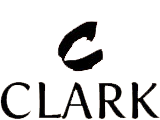|
THREE QUESTIONS TO ASK ABOUT YOUR HOME EQUITY LOAN  The Internal Revenue Service has advised taxpayers that interest on a home equity loan used to build an addition to an existing home is typically deductible, while interest on the same loan used to pay personal living expenses, such as credit card debts, is not. Click here to view the announcement. Here are three examples from the announcement with updated dates: ARE YOU USING THE FUNDS FOR HOME IMPROVEMENTS? In January 2023, a taxpayer takes out a $500,000 mortgage to purchase a main home with a fair market value of $800,000. In February 2023, the taxpayer takes out a $250,000 home equity loan to put an addition on the main home. Both loans are secured by the main home and the total does not exceed the cost of the home. Because the total amount of both loans does not exceed $750,000, all of the interest paid on the loans is deductible. However, if the taxpayer used the home equity loan proceeds for personal expenses, such as paying off student loans and credit cards, then the interest on the home equity loan would not be deductible. IS THE LOAN ATTACHED TO THE RIGHT PROPERTY? In January 2023, a taxpayer takes out a $500,000 mortgage to purchase a main home. The loan is secured by the main home. In February 2023, the taxpayer takes out a $250,000 loan to purchase a vacation home. The loan is secured by the vacation home. Because the total amount of both mortgages does not exceed $750,000, all of the interest paid on both mortgages is deductible. However, if the taxpayer took out a $250,000 home equity loan on the main home to purchase the vacation home, then the interest on the home equity loan would not be deductible. ARE YOUR TOTAL BALANCES LESS THAN $750,000? In January 2023, a taxpayer takes out a $500,000 mortgage to purchase a main home. The loan is secured by the main home. In February 2023, the taxpayer takes out a $500,000 loan to purchase a vacation home. The loan is secured by the vacation home. Because the total amount of both mortgages exceeds $750,000, not all of the interest paid on the mortgages is deductible. A percentage of the total interest paid is deductible.
 Opening mail from your credit card company is never fun. If it isn’t a bill or marketing letter, it’s often an update to the terms of the credit card agreement, including changes to the annual percentage rate, or APR, that determines the interest rate paid on revolving balances. Credit card interest rates are tied to the benchmark rate set by the Federal Reserve, so if you’re paying attention to what the Fed does then you might get an idea of upcoming increases. Or if you wait to receive a letter from your credit card company, the notification will usually come 45 days in advance, giving you at least one billing cycle to pay down your balance or find a better credit card. When You Won’t Be Notified However, you may not get such explicit notice if you incur a penalty APR for missing payments. The APR increase is immediate and is explained in the terms and conditions you originally received with the card. The contract will also list how you can get back to the original interest rate. Promotional rates are for a fixed period and you likely won’t get notified of when they’ll end. If your APR is variable and tied to interest rates set by the Fed, then you may also not be notified early. Your credit card company may notify you anyway, but it isn’t required. What to do About a Rate Hike If you receive a credit card rate increase notice, your best solution is to ask the bank to lower your rate. It just takes a phone call and can often get you a reduction if you have good credit history and always make payments on time. You can also shop around for a better credit card elsewhere—be sure to let your bank know of better offers that it should at least match. If you have a large balance, a balance transfer card can help you avoid the higher interest rate that’s coming soon. Balance transfer cards often offer 0-percent interest for a year or so, giving you time to pay it off before having to pay interest. The best solution is to pay your credit card balance in full each month to avoid paying interest. Not carrying a balance is one of the best things you can do to raise your credit score. YOUR COST OF BORROWING MAY BE LOWER THAN YOU THINK! 1. THE HIGHER THE INTEREST RATE, THE BIGGER THE TAX DEDUCTION.Homeowners who itemize tax deductions can deduct the interest on up to $750,000 of mortgage balances used to buy, build or improve a qualified home. In the past few years, not as many home buyers benefited from this because their total annual interest expense was lower than their standard deduction. However, interest rates and total annual interest expenses have doubled this year according to Freddie Mac's weekly survey of mortgage rates. For example, a $500,000 mortgage at a 6.5% interest rate has an annual interest expense of $32,500. This far exceeds the standard deduction. This also means that the homeowner in this example is more likely to itemize and benefit from the mortgage interest deduction. 2. HOW BIG IS THE TAX BENEFIT?Calculate for yourself!
|
Isaac Conde
305 West Moana Street Suite C Reno, NV 89509 775-553-8805 B.S. 0143661 ROI
All
|
305 West Moana Street
Suite C
Reno, NV 89509
775-553-8805
B.S. 0143661
Suite C
Reno, NV 89509
775-553-8805
B.S. 0143661



 RSS Feed
RSS Feed


